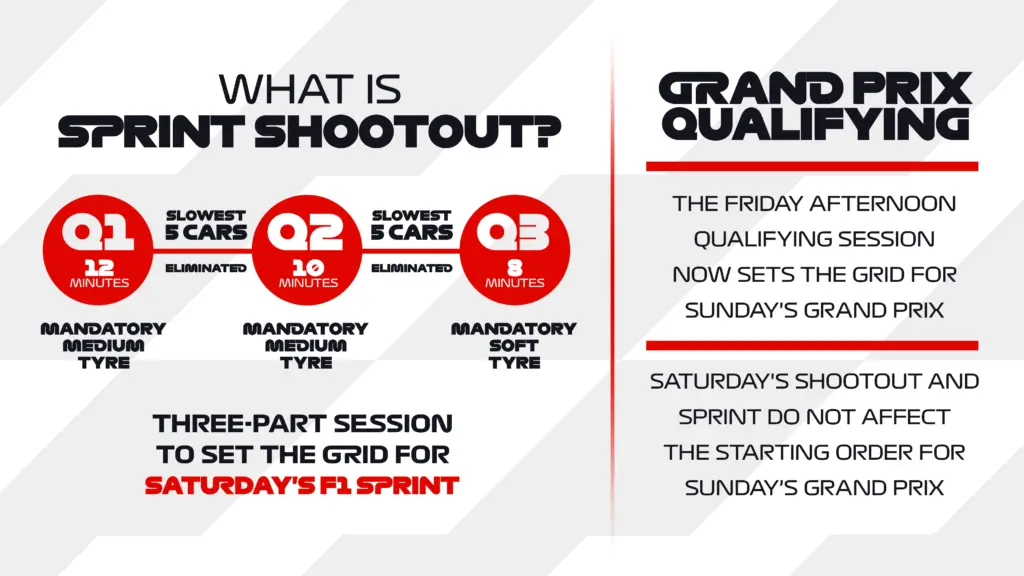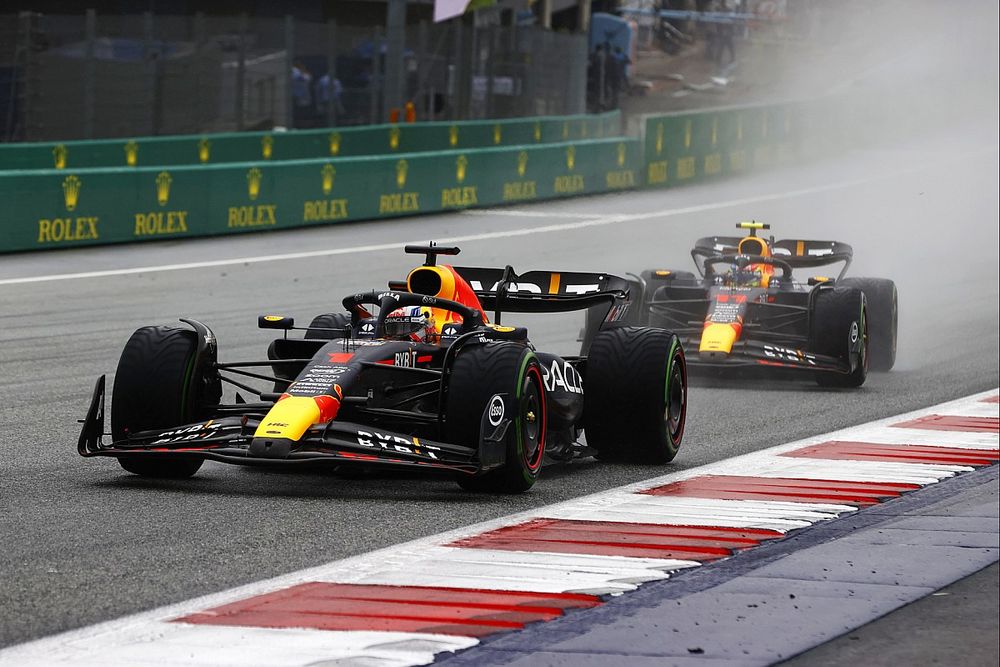Formula 1 is an adrenaline-pumping motorsport that showcases the world’s best drivers competing for glory and championships. While the main focus lies on the race, the qualifying sessions are equally vital in determining the starting grid.
In this article, we will explore how F1 qualifying works. We discuss the following
- Introduction of Sprint Qualifying
- The significance of qualifying points
- Whether drivers receive points for winning the sprint races.
Points for F1 – How Does F1 Qualifying Work?

F1 qualifying is a multi-stage process that takes place on the day before the race. The qualifying session has three segments – Q1, Q2, and Q3.
During Q1, all drivers have 18 minutes to set their fastest laps, with the slowest 5 drivers being eliminated after the session.
Q2 follows a similar format, with 5 more drivers being eliminated, leaving only ten drivers for the final shootout in Q3.
In Q3, the top ten drivers compete for the best starting positions.
The driver who sets the fastest lap in Q3 claims pole position, starting at the front of the grid in the race. The rest of the grid is determined based on the times set during the respective sessions.
Points for F1 – Sprint Qualifying
In recent times, F1 has experimented with a new format called Sprint Qualifying. The FIA holds a a shorter race on Saturday, setting the grid for the main race on Sunday. The results of this Sprint Qualifying race determine the starting positions for the Grand Prix.
Sprint Qualifying adds an extra layer of excitement to the race weekend, offering drivers another opportunity to showcase their skills in a more intense and condensed format.
Are Qualifying Points Important?
While qualifying is instrumental in determining the starting grid for the race, F1 drivers do not receive points solely for their qualifying performance.
The FIA awards points based on the race results. The top ten finishers in the main race win points, with the winner receiving the highest number of points, and subsequent positions earning progressively fewer points.
Although drivers do not receive points for qualifying, securing a higher starting position can significantly impact their race performance.
A favorable starting position can increase their chances of avoiding potential first-lap incidents and allows them to capitalize on strategic opportunities during the race.
Do Drivers Get Points for Winning the Sprint Races?

In the new Sprint Qualifying format, points are awarded for the top finishers in the Saturday Sprint Qualifying race. The winner of the Sprint Qualifying race receives three points, the runner-up receives two points, and the third-place driver receives one point. These points contribute to the driver’s overall championship tally.
While the points earned from Sprint Qualifying may not be as substantial as those from the main race, they can still play a crucial role in the championship battle, especially in close title races.
Points For F1 – Conclusion
In Formula 1, drivers do not receive points for their performance in the standard qualifying sessions. However, the qualifying process remains essential in determining the starting grid for the main race.
The introduction of Sprint Qualifying has added a new dimension to the race weekend, offering drivers additional points-scoring opportunities.
Ultimately, it is the race results that matter most in earning championship points and shaping the outcome of the thrilling F1 season.

![Racing Point [2020] - €400,000](https://f1worldwide.com/wp-content/uploads/2023/06/Racing-Point-2020-E400000.webp)